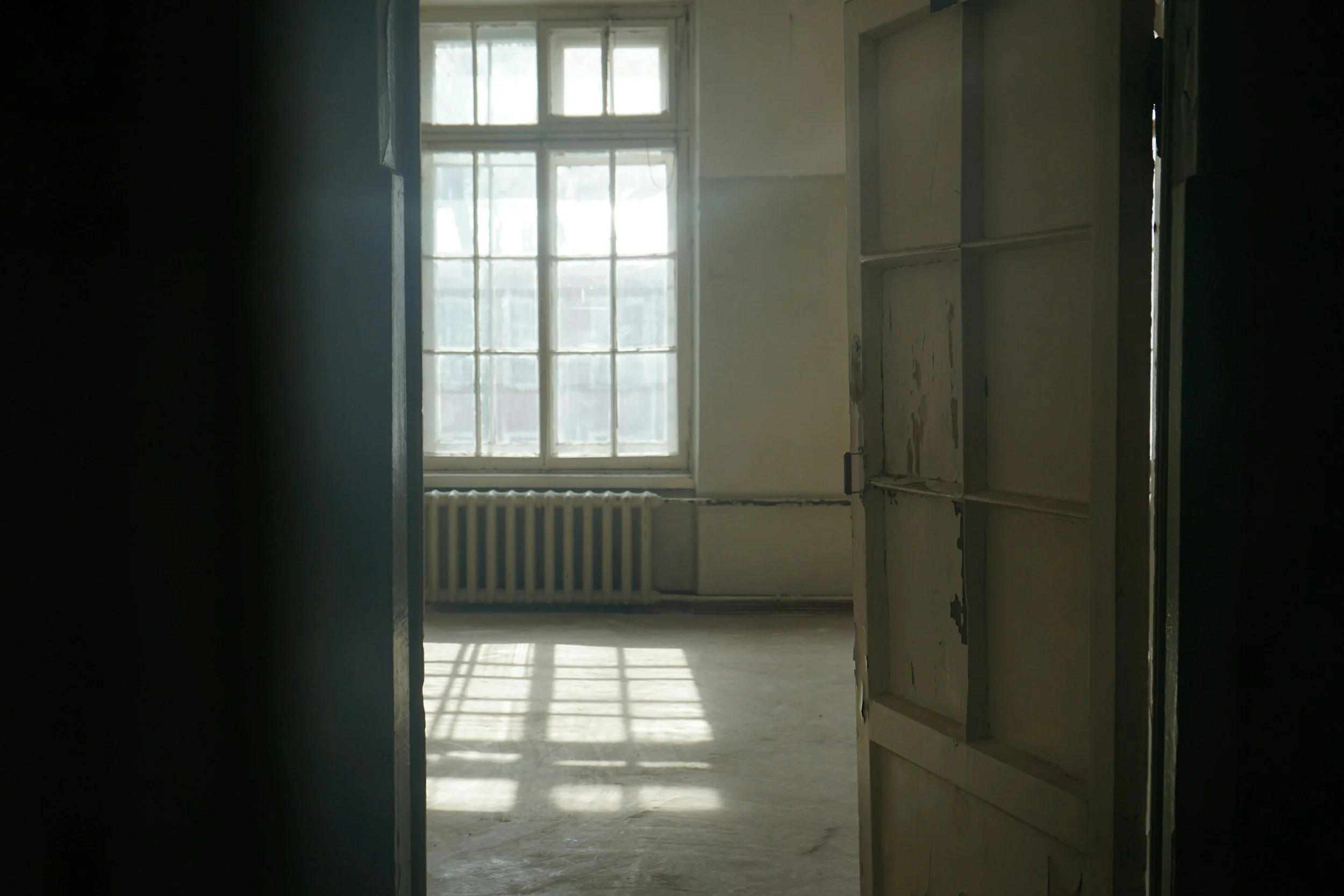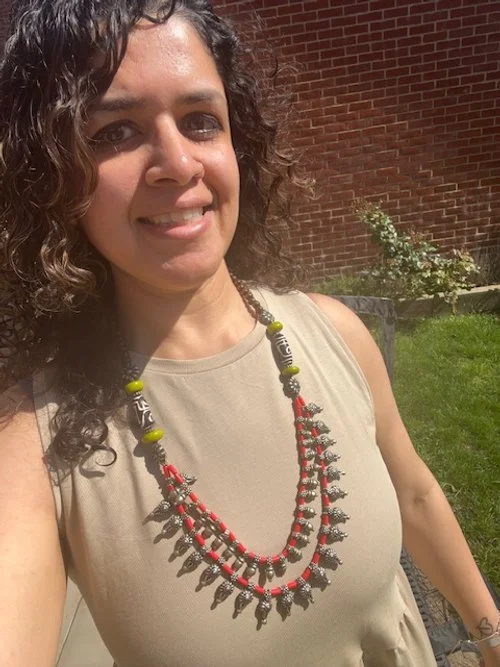Curly Tales - From India to the UK - Are We Really Inclusive?
A large part of getting ready for school involved taming my unruly curls in order to ‘look presentable’. My grandma would oil my hair with coconut hair oil, her fingers expertly weaving their way through the knots in my hair to reach the scalp. After this, came the painful process of running a comb through my hair to get rid of the knots. I remember squealing in pain as the comb worked hard to straighten my stubborn curls. The tears tracing the length of my cheeks were quickly patted dry amidst instructions of not causing drama before school.
Today, even after so many years and even a couple of decades later, this memory still lingers on as a traumatic ritual for me. But, for me, this is all I have known. It was a widely accepted norm during my growing up days in Bombay, during the late 90's and early 2000's.
I can confidently say that throughout school, university and work I felt that there was an inherent bias towards straight hair. (This concept of straight hair, might I add, was reinforced by media and pop culture which originated in the West and was one of many things that we blindly aped.) If you had curly hair, you had to aspire to attain the society approved straight hair image. So, every morning, as my school uniform came out, so did the straightening iron. Inevitably, in that process I ended up causing long-term damage to my hair but, at that point in time, I was not thinking of - or aware - of these effects. What mattered to me was gaining acceptance into the ‘straight hair cult’, so to speak. Unlike my curls, I was scared to stray away from the norm.
Things started changing when I went to University. I studied psychology and with that came a deeper understanding about the concept of self - especially self image and self esteem and how these are so closely linked to the way we look. I realised that, alongside the usual physical features, hair colour and hair type also play a big role in self-perception. In hindsight, understanding this at an intellectual level helped me with self -esteem issues emanating from my lack of naturally straight hair.
After university, I went on to do a post-grad in Human Resources and, from 2007-2020, worked in HR departments across India and the UK. When I think back to this time, I see a dichotomy. As somebody in the HR department, it was imperative to accommodate and encourage diversity at work. And yet, I could not help but observe, once again, a bias towards straight (i.e Western) hair especially in professional services (finance, law, consulting) and hospitality (hotels, airlines) where curly hair was thought of as "unkempt" and therefore strongly discouraged and even managed at an HR level.
And it's not just me who has noticed this either. In a recent study by J.V. Peluchette (2023) ‘Is Curly Hair Viewed as Professional? Examining Hair Bias Against White Women With Curly Hair’ by J.V. Peluchette (2023) showed that straight-haired women were rated significantly higher than curly haired women on job characteristics that are important to professional positions. Thus, a bias against curly haired women appears to take place in the workplace. On top of this, in a Forbes article (2022), Janice Gassam Asare writes about ‘Four Ways Hair Bias Shows Up In The Workplace’ highlighting discriminatory policies, hiring biases, microaggressions and inequitable treatment.
If I were to compare my experience of working in both countries I would say that the bias was more blatant in India and more subtle in the UK.
In India, for example, you were told quite directly to ‘sort out your hair’, especially when you were going to work. Looking neat and presentable were both absolutely necessary. In a country where labour is cheap and employers have immense choice within the labour market, you could not take a chance, especially if the factor that could put you at a disadvantage was seemingly under your control to manage. In the service industry, especially within hospitality, there are training sessions focused on grooming and presentation - how to dress, how to do your hair up and so on. Airlines also fall under this category. I remember my fellow HR colleagues working within these industries included a list “grooming requirements” as part of company policy. Nobody dared to challenge these. In a ‘perform or perish’ culture, you could not risk losing your job because of your opinion about vanity, could you?. This was the general perception according to what I observed and understood.
I believe that the bias was more subtle in the UK due to such strict employment and discrimination laws. Diversity and inclusion is an important part of HR policy across companies and breaching it may have grave consequences for the employer. From my understanding of how organisations operate and disseminate their HR policy, inclusivity has always been one of the main organisational goals. However, some industries still insist upon presenting a “neat and tidy” look. The word curly is not used of course but one cannot help but read the subtext underlying such statements. I have noticed that there are industries that are more open to curly hair like media, publishing, the arts; essentially, the more creative jobs.
I would say that preference towards straight hair was never direct. It was always subtle through the norms that you saw at the workplace. For example, blow drying your hair or straightening your hair for an important job interview or appraisal was commonplace and even encouraged by praise, reward or both.
The curly hair revolution is only recent with the ‘curly girl method’ and various curl styling products that have now saturated the market. There are even hair salons specialising only in curly hair styling and treatment. I would like to think that my crown of curls is more accepted today than it was five years ago. However, would my hair go against me at a job interview within professional services? I still cannot say no confidently and that answer itself points to the need to reexamine our constructs of what is considered “professional”.
Written by Snehal Amembal
I am a freelance writer, editor and poet based in Surrey (UK). I currently freelance with Business Insider, Her View From Home and Motherly. My writing primarily reflects my motherhood journey, memories of my childhood and the essence of everyday moments which I record in my FB blog ‘ Notes On The Go’. I also review books authored by writers of South Asian heritage on my blog Desi Lekh.
I have authored three chapbooks, ‘Pause’, ‘I Am’ and ‘In Between Love' . My work has appeared in anthologies as well as in literary zines. I worked as an Editor with Daily Life Magazine for 1.5 y (2020 - 2021). You can take a look at my work here https://linktr.ee/mommy.snippets
Finally, I am a Young Onset Parkinson’s Disease (YOPD) warrior and create awareness about the condition through my writing. You can find me on Instagram: @mommy.snippets




